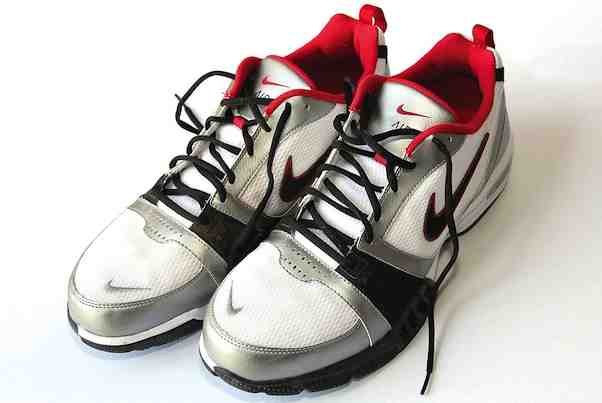
Nike Inc.’s organizational culture supports business resilience and capability. Organizational culture is the combination of traditions, habits, values, and behavioral expectations among the company’s employees. Nike’s workers are given a set of instructions, rules, and expectations on how to do their jobs, with consideration for their relations with customers and other employees. This approach maintains the corporate culture, which partly contributes to the success of the business and the fulfillment of strategic goals based on Nike’s mission statement and vision statement. As one of the giants in the global athletic shoe, apparel, and equipment market, Nike Inc. continues its policies and strategies to promote an organizational culture that reinforces business resilience and competence.
Nike has an organizational culture that encourages human resources to behave in ways that address business objectives. Training programs are designed to uphold such a corporate culture that aligns with the Nike brand image for sportswear. In this regard, the company culture reinforces the business strengths shown in the SWOT analysis of Nike, such as the brand and product innovation capabilities. This support from the work culture enhances the company’s advantages over competitors, such as Puma and Adidas.
Features of Nike’s Organizational Culture
Nike’s organizational culture is centered on creativity and innovation to provide products that suit current consumer preferences and market trends. The company is known for cutting-edge sports shoes, apparel, and equipment. The following main characteristics of Nike’s corporate culture sustain business and market competence:
- Talented
- Diverse
- Inclusive
Talented. Nike Inc. understands that talent and innovation go hand-in-hand. This feature of the organizational culture emphasizes the need to provide human resource support for product development and internal services in the corporation. As such, Nike uses training programs to maintain employee talent. The company also has coaching and mentoring programs. These approaches are based on a strategy that develops and enables leaders within the organization for the company’s global growth. The purpose of this characteristic of Nike’s corporate culture is to sustain talent and infrastructure necessary for producing some of the world’s most popular sporting goods.
Talent developed with this business culture supports the business goals for differentiation and product development defined in Nike’s competitive strategy and growth strategies. For example, high-talent teams ensure competitive footwear designs. Also, through support for talent, this company culture improves competencies for mitigating the effects of the competitive issues outlined in the Five Forces analysis of Nike. The company’s cultural traits ensure human resource capabilities that effectively match challenges in the sporting goods industry.
Diverse. Diversity is continually developed in Nike’s organizational culture. The company believes that this feature of the corporate culture leads to a dynamic workforce. Diversity promotes Nike’s creativity, innovation, brand image, and competitive advantage. The company maintains diversity through HR programs, such as the Speak Up! program, which facilitates the sharing of ideas among workers. This feature of the corporate culture maximizes Nike’s product development cycles, especially in creating new designs for its products. Diversity also aligns the work culture to social trends relevant to the sporting goods business, such as the market trends shown in the PESTLE/PESTEL analysis of Nike.
Inclusive. Nike Inc. emphasizes inclusiveness in its organizational culture. The purpose of this cultural characteristic is to minimize barriers to employee performance. The sporting goods company’s strategy uses inclusiveness as a tool for optimal performance, diversity, and talent development. The company supports this feature of the corporate culture through a team-based approach to management. In addition, Nike employs a number of programs, such as Bias to Breakthrough (a program for removing barriers to creativity) and NCourage (a set of employee networks for cultural awareness and community building). This feature of the organizational culture minimizes problems in the company’s workforce and supports streamlining sporting goods design and production processes. This aspect of the company culture helps satisfy Nike’s corporate social responsibility (CSR) and ESG goals for its human resources, who are stakeholders in the business.
Nike’s Culture: Advantages, Disadvantages, Recommendations
An advantage of Nike’s organizational culture is its support for new product development. The characteristics of this culture ensure that the company continues its competitive advantage in the global sports shoes, equipment, and apparel market. Also, the diversity and inclusiveness features of Nike’s corporate culture help develop employee morale. However, a disadvantage is the potential reduction in managerial efficiency. This organizational culture facilitates employee involvement, although it also increases the workload of the company’s managers. A suitable recommendation is for Nike to increase its investment in managerial personnel to balance the effects of its corporate culture. Furthermore, fine-tuning Nike’s company structure (business structure) can improve organizational divisions to facilitate the reinforcement of this work culture.
References
- Karneli, O. (2023). Analysis of motivation, work culture, and work environment on the level of employee integrity in the company. International Journal of Environmental, Sustainability, and Social Science, 4(2), 547-551.
- Life at Nike.
- Ng, K. Y. N. (2023). Effects of organizational culture, affective commitment and trust on knowledge-sharing tendency. Journal of Knowledge Management, 27(4), 1140-1164.
- Nike, Inc. – Diversity, Equity & Inclusion.
- Nike, Inc. – Form 10-K.